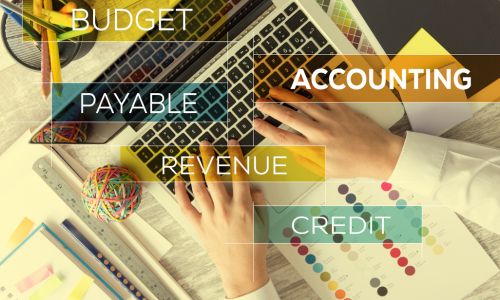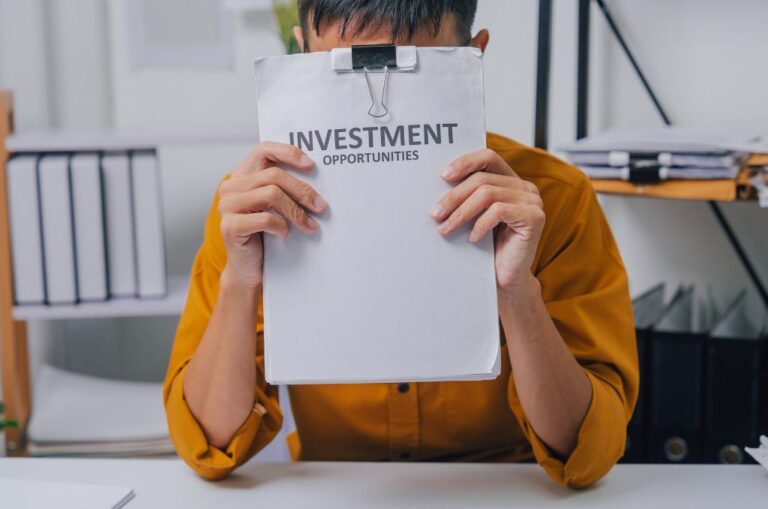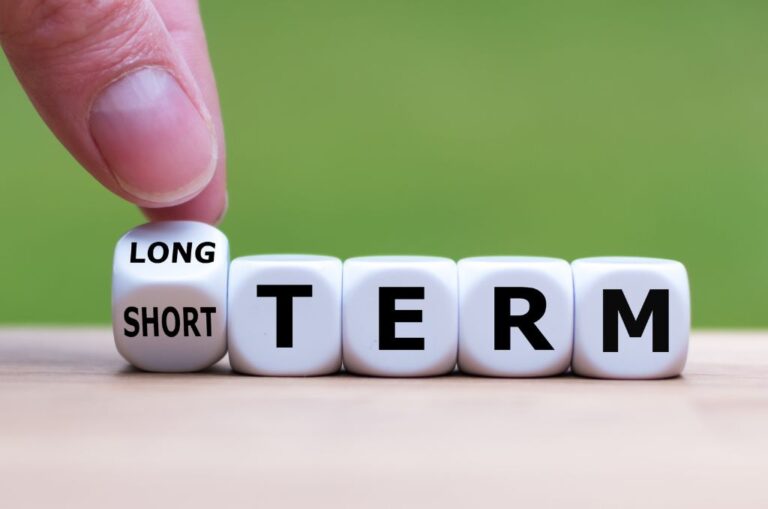Investing in your 30s is a crucial step toward securing your financial future. Whether you’re just starting or looking to refine your strategy, this guide will help you navigate the best investment opportunities for this pivotal decade. Your 30s are the perfect time to build a solid foundation for long-term wealth, and one of the most powerful tools at your disposal is compound interest. Understanding and harnessing this force can significantly boost your financial standing and help you prepare for primary life goals like homeownership, retirement, and family planning.
In this article, we’ll explore investment options, strategies, and tips tailored to your financial situation, ensuring you make informed decisions and set yourself up for success in the years ahead.
What Is Investing?
Suppose you get some $15000 as your inheritance fund from one of your grandparents. You might be in a dilemma about where to put this much money. Situations like these will bring out the importance of investment. So, to understand investing better, you put these $15000 in mutual funds to earn more from them. Thus, investing in putting small or big chunks of dollars in one or more assets like mutual funds, stocks, real estate, basically anything that gets you returns. The more money you invest, the more returns to get. The better assets you choose, the more the return on investment.
Is 30s Late To Start To Invest?
With the rise of hustle culture, everything and everyone seems to be working at a much faster pace than you. And this might even get you thinking if you are late if you are starting to invest in your 30s. But is it actually?
If you go by facts, this is the time when you have clear financial goals and, along with that, generally at least one stable and regular source of income. This also means you would have developed a greater understanding of the market and thus might be much more ready to take risks in your portfolio. Thus, investing in your 30s is not too late.
Why Is Investing In Your 30s Important?
It is crucial that if you were not able to start investing at an earlier age than in your 30s, you start investing now. This is because by investing your 30s you would be open to investing for your retirement. It doesn’t matter if you have kids or not; you will have to save for your retirement nevertheless. And thus, crafting a plan for the same could begin in your 30s. You could start investing in tax-advantaged investment accounts like Roth IRA or 401k. If you are a newbie, you could start with ETFs or index funds, which are easy to understand, have low risk and require minimal management.
Further, if you wish to have children or wish to have them in the future, you should look out for investment options likewise. You should invest in some real estate or in assets that grow with time. Consider looking at long-term investment options. This will help you build your wealth so that you are able to secure your kids’ future. Hence, investing in your 30s is important so that you are able to meet these two very important financial goals.
How To Know If You Are Ready For Investing?
There are a few ways to know if you and your finances are ready for investment. This is that you have money, risk potential and goals to make investments.
1. Emergency Fund

Over the years, if you have built an emergency fund that is sufficient to make you trust and fall back on it, this is the right time to invest. This emergency fund will help you financially when you are in an unexpected situation like job loss or accident etc. Use this emergency fund to provide you a backup of around 2 to 6 months.
If you are on the track of achieving financial freedom, building an emergency fund is the first step in the way. If you are still short on money in your emergency fund, then investing might look like an extra burden. But when you know you have a solid fund to fall back on, you might want to explore your risk potential and invest.
2. Debts or Loans

It is very common to have student loan debt or credit card debt. But once you start earning and have a well devised plan to repay your debt, it is likely that you are able to pay off some high interest debts. And now it might be that you are debt free and it might be the right time to start investing. When you aspire to be financially independent, being debt free comes on top of the list. And then investing follows. Thus, if you have already paid off all or most of your debt, you might be ready to invest.
3. Extra Money
You have your emergency fund set up, you have paid off your debt, now when you budget you find that you have extra money left at the end of each month. You can obviously save them in a simple bank account or you could start investing those extra bucks wisely. You can start investing with little money in the beginning to take account of your risk potential and familiarize yourself with investment and its nooks and crooks. Thus, each month after all the expenses, billings, and even after saving, you are still left with extra money you are ready to invest.
4. Financial Goals
If you are aware about the financial goals that you wish to achieve through your investments, it would indicate your readiness to invest. If you have a short term goal like a foreign summer vacation or a long term vacation like marriage. You would want to have money for it and thus, you have to be ready for investing.
5. Working Money
You wish your money to work for you. In simple terms you don’t want the money sitting idle, in a pouch in some corner of your closet. You want some returns on your hard earned money and want to even double it.
Further with ever rising prices and ever coming inflation, getting your extra idle money to work is the only option to make sure that you live a financially fulfilling life. Hence, investment has to come into picture. So if you are ready to grow your money for your better financial future, you are ready for investment.
What To Consider Before Investing?
Even when you are investing at an age that is considered to be the one where you have been aware of your finances, it would still be okay if you have your reservations and want to take some precautions before you start investing. Thus, here are some things that you must consider before you start investing.
1. Roadmap

For you to understand where you want to go with your investments, it is important that you create a financial roadmap before you start looking at the possibility of investing in different assets. This roadmap will tell you about your financial goals and your risk tolerance capacity. When you have to decide what kind of investment you want to make, you can make a more informed decision.
2. Diversified Portfolio
You must make sure that when you are investing, you invest in more than one kind of asset. You must diversify your portfolio so that the risk of losses is divided equally. Also the overall returns on your investment will thus be more smooth and profitable to you. But at the same time you must include enough risk in your invested assets so that you are able to get returns in the long term and your financial goals are reached.
3. Funds and Debts

As mentioned above, if you have created an emergency fund and if you have already paid your high-interest debts, you might be ready to invest. But if you haven’t, you must do so before you start investing. This is because this will help you to keep all your extra money into investment and grow it. It also makes it easy for you to keep track of the investments when you know that the rest of the budget is working on track.
If you are looking for debt repayment, you can even try specialists like Accredited Debt Relief, which helps you bring your monthly payments down. This will help you pay off your debt even in months when your finances aren’t as sorted.
4. Free Money
You have to take advantage of free money from your employer. This money is the amount that your employer will pay for your contributions. This is specifically for your retirement plan. So make sure that your employer provides for the contribution in your retirement plan and you do not pass it on.
How To Start Investing In Your 30s?
It is important to understand how you should start investing, regardless of the kind of investment you wish to make.
1. Goals
The first step in investing is to understand the goals that you wish to achieve. Whether your financial goals are short-term or long-term will help you choose the kind of investment you wish to make. At this age, you are starting to invest. Usually, goals are long-term, like retirement or buying a house. Thus, long-term investments come into sight.
2. Strategy
After goals, you must decide on the strategy that you wish to adopt before you start investing. The strategy will make sure you are aware of the amount that will go into each asset so that you are able to keep track of the same. You can reach experts like Empower, who can help you and guide you through your investment and wealth management journey.
3. Account

You need to open an investment account. If your employer offers 401(k), you can open an account with the help of your HR in the office. Further, you can open an IRA and get options like accounts that mutual funds companies, banks or life insurance companies sell. You can also buy bonds, stocks or mutual funds in a taxable account if you like.
4. Assistance
And before you start investing, if you are a stranger to the investing world, you could take advice. You could either go for a robo-advisor with ready-made, diversified portfolios that can be customized according to your risk tolerance and financial objectives, allowing you to automate your investments accordingly. Or you could try services provided by companies like Empower or Acorn, which assist in your investment journey. And, of course, you can always get assistance from a financial advisor about your portfolio.
How To Invest In Your 30s?
The question consists of answers in four parts.
Why To Invest In Your 30s?
When you are starting to invest, you need to be aware of exactly why you should invest. Besides your financial goals, there are other reasons why making investments is a good option.
1. Tax
When you invest, it assists you in getting tax benefits. And considering the tax rates going up with the inflation, investment is a good option.
2. Security
If you have financial goals for retirement, you are on the right track, but if you are in doubt, you might want to invest for security. You can invest in real estate and thus make sure that you have a property that could be your living space in your old age.
3. Time
In your 30s, you are more aware of finances than you were in your 20s, but you are still in time to invest. Thus making the 30s a perfect age to invest for long-term returns and watch your money grow more.
4. Goals
And, of course, we talk about goals again. Investing is important so that you can have money to fulfill your financial or life goals, like retiring early or buying a house.
How Much To Invest In Your 30s?
The money that you wish to invest will obviously differ according to your income every month. But if you are going by the general approximation, then financial experts advise anywhere between 15% to 25% of your after-tax income.
Now, much of the income that will actually go to your investments will be decided by the income, savings, and budget that you create for yourself.
Further, if you are employing less of your income towards investment but are doing so for the long term, it can prove to be beneficial and profitable. Thus, you can compensate for the low amount of money in investment for a long-term investment.
How To Invest In Your 30s?
This might seem like an extension of the entire article, but it is not. Here, we discuss how to actually invest, aka investing styles. You either use these or use combinations of these to make a profit.
1. Quality Investing

This aims at purchasing stocks in a company that is beneficial or financially profitable. The companies have high earnings and a stable balance sheet.
2. Growth Investing
This aims at purchasing stocks in a company that is on track for growth. The companies, when they reach success, would bring good returns and low dividend payouts for you as an investor.
3. Passive Investing
This aims at purchasing stocks in a company and then not selling them instead holding them for a long time. It is like buying a stock and then forgetting about it. This is comparatively low-risk and more plausible when you are just starting.
4. Active Investing
This aims at purchasing stocks in an undervalued company or undervalued stocks itself. This is the effort made to beat the market. You will be required to do research, time and skill to work this kind of investment out. This is comparatively high-risk and gives better returns than passive.
5. Value Investing
This aims at purchasing stocks that are undervalued, which might grow to give value and hence provide profits when sold. You can get a high dividend yield if you are able to do it right.
Where To Invest In Your 30s?
This is the part in which we discuss the investment options that are best when investing in your 30s.
1. Stocks
It is a known fact that the stock market comes with its risks, but it also offers rewards that can sometimes outweigh the risks. But this is in the condition when you are able to take the risk and invest in the right kind of stocks.
Direct equity investments are a good option if you are looking for long-term investments. In order to manage the risk that comes with these, you could diversify your portfolio by investing in different sectors and time frames.
2. ETFs
Exchange-traded funds are stocks that are purchased at a lower cost. This is beneficial if you do not have a lot of money to invest in. You can similarly trade these as stocks. Here, you also have the option of diversifying your portfolio or investing in companies that are of the narrow sector.
3. Mutual Funds
You can own a group of securities like bonds or stocks. In mutual funds you let the professional fund managers decide where they put your money in for investment. These funds bring in high returns and sometimes charge high fees as well.
4. Real Estate
It is considered one of the most important investments that anyone who is now aware of their life goals and has a stable source of income should consider. You must invest in real estate. This is because it comes with good returns and is a security for your future as well. You would want at least one property in your name when you are in your 30s.
5. 401(k)
This is the investment kind for retirement. Your 30s is the best time to prepare and plan for your retirement. This is an employer-plus-employee retirement investment. The contributions will be paid together and in equal amounts. So, never not invest in it. This will help you to take advantage of free money from your employer.
6. IRA
The kind of employment you are in, the employer doesn’t provide for 401(k) plans. Thus you should then invest in individual retirement accounts. These accounts assist you in investing in ETFs, Mutual Funds, stocks and bonds. You can make an investment of around $6000 every year, which could give you a huge amount when you retire. The money would grow for a long time. You can automate your payments so that you stay committed.
7. Life Insurance
Life insurance is the best investment. You could protect the wealth that you have been working so hard to earn even after you pass away. There are three types of life insurance: whole, guaranteed and universal, which are permanent life insurance. These life insurance help in taking care of your cash similar to a savings account. You would be investing while making sure that your family has financial security after you die.
Conclusion
The 30s is the time in your life when you should have already fixed your finances. Know where investments make the most sense. But the truth is personal finance is tricky for some. And it is not until the late 20s that people start earning enough and are free from debt. You could only think about investing when you have extra money or enough money to pay off your bills before investing. Thus, how to invest in your 30s doesn’t have to be a question that is difficult to answer when you read an article as descriptive as ours.
Find this helpful? Share it on Pinterest, LinkedIn and Facebook for your dear ones. Also, subscribe to our newsletter to receive articles like these straight to your inbox.
Did you take our Reader Survey? If not, it only takes 1 minute and you can take our survey here.








